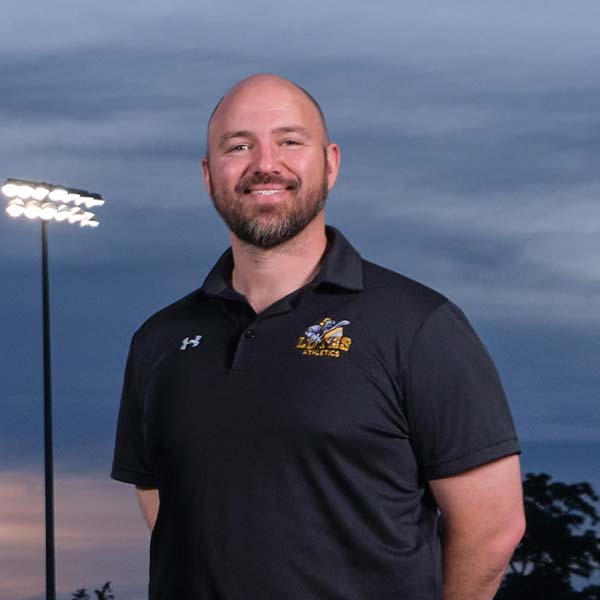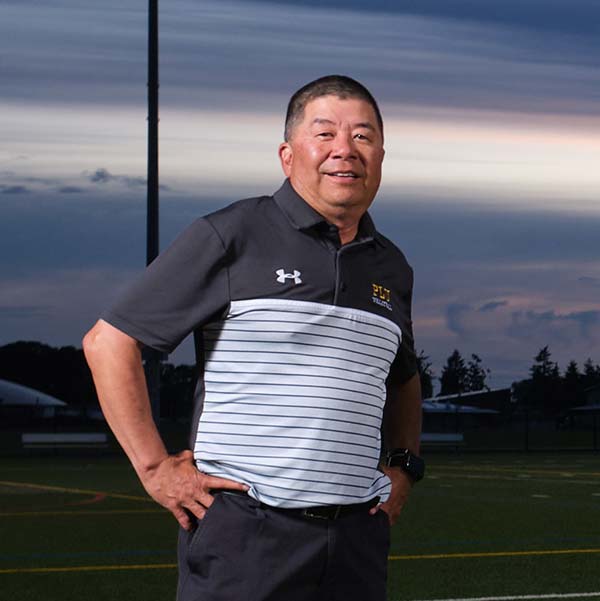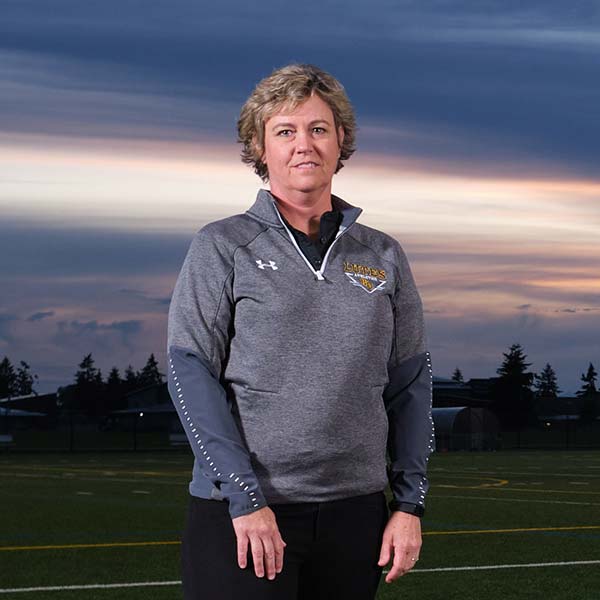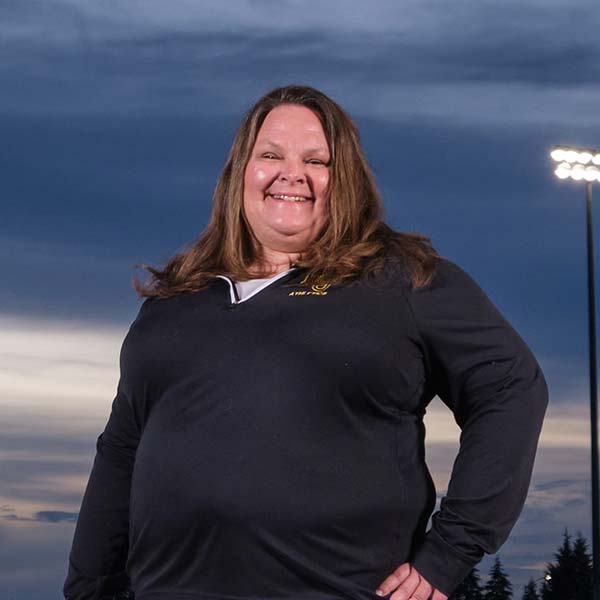What’s another word for mentor? Any athlete can tell you: coach. A great coach knows how to get the best performance from an athlete by knowing when to push, when to pull back, when to nurture and when to let go. Great coaching comes from building relationships with athletes, one by one, and preparing them for life after college.
Football Coach Brant McAdams, volleyball Coach Kevin Aoki ’84, women’s basketball Coach turned assistant Athletic Director Jennifer Childress, and Interim Athletic Director Jen Thomas ’98 MAE ’99 sat down and talked about the role of mentorship in PLU sports.
BM: Our program is relationship-based and growth-based. In 2018 we started the Kinship Alumni Mentorship Program and paired one alum with one first-year. We laid out pretty broad guidelines so it could be organic. It was establishing additional touchpoints for people to lend their experience and provide support. I think that’s incredibly critical.
KA: Last year I brought in a former player, Diane Whaley. We had her come and speak to the team and explain her role as a deputy prosecutor and how she’s working for a good cause. That’s one area I’m going to continue to grow. We need highly successful, engaging mentors.
JC: My first year here at PLU we implemented the honorary coaches program in which we bring in successful women in our community on campus that provided female mentorship. On the flip side, I think it’s really good for college athletes to have the experience to be mentors to others. Our camps are structured around our individual players mentoring young people. We don’t just come in and teach basketball. We teach leadership skills and communication skills.
JT: We provide leadership learning opportunities to our student-athletes through the Lutes LEAD program so there can be internal mentorship within teams. The student-athlete networking event establishes some professional and student mentorship opportunities. Alums connect with students through that event.
My role provides me the opportunities to really work with some great students who had interests going into the athletic field. Notably, Amy Wooten ’14, who worked for me for three years. I was able to mentor her as a student and then to continue as she moved through her grad school and into a professional role. We kept in contact, especially that first year out of grad school, and helped her navigate that.
BM: Mentorship starts with clearly defining the mission and then continuing to refer back to it. When it comes to mentorship, I think that truly fits what PLU is about. Thoughtful inquiry, service, leadership and care. I think those values are all housed within a successful mentor relationship.
KA: I’ve been a student, going for four years and then coming back to coach for almost 25. Obviously something has to be right. The feeling that everyone on campus cares about each other. That environment touches coaches, players, and trainers and spreads out. They talk about the “PLU Way” or “Once a Lute, Always a Lute,” that’s what that means — the caring factor that everyone has.
JC: Whether you walk across campus and you run into the president or another employee, the care and the genuineness of the people is definitely what stands out.
JT: I think it’s the people at PLU and the connections we make through our time either as students or alumni. Even through the recruiting process, it’s the connections that the coaches make with the prospects and their parents early on that continue during their time as students at PLU. My vocation is really at PLU and in the athletic department because I care about the students and want to be able to help them grow as individuals.






